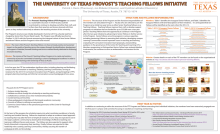Identifying Successful Learning Strategies in Online and Blended Classrooms
In order to better advise students, we need to have a fuller understanding of how individual students learn in various environments; what strategies tend to work best in online vs blended classrooms; and what types of students are going to profit most from the advantages—and be harmed least by the disadvantages—of each learning environment. The project will use the accompanying grant to fund a study that compares student learning strategies and success in the online and blended versions of Introduction to Ancient Rome (CC 302). Specifically, I am interested in developing a study that will allow us to develop an evidence-based approach to student advising, particularly when it comes to directing students to different learning environments. I am also interested in trying to determine, insofar as we can, what specific factors account for success and failure in these different environments. For instance, it is well-established that highly motivated students do better than their less motivated peers in online classes. But, I wonder, can this gap be closed with a more structured and personalized online environment? These are the sorts of questions I am interested in investigating with a team of assessment specialists; and whose answers will have far-reaching consequences for university students at UT and elsewhere.
Impacts from This Initiative

UT Provost’s Teaching Fellows Initiative (De Lange Conference, Rice University)
More than a dozen of the country’s leading education experts met at Rice University October 13-14, 2014 for the biennial De Lange Conference, “Teaching in the University of Tomorrow.” This conference was presented in collaboration with Scientia, an institute for the history of science and culture, and the Center for Teaching Excellence at Rice University.

The Social Classroom (Chronicle of Higher Education)
PTF Jen Ebbeler was interviewed for this article in The Chronicle of Higher Education about how professors can help their students connect and build relationships in both in-person and virtual classrooms, and explore the impact of student interactions on their learning.
Read the entire article here.

